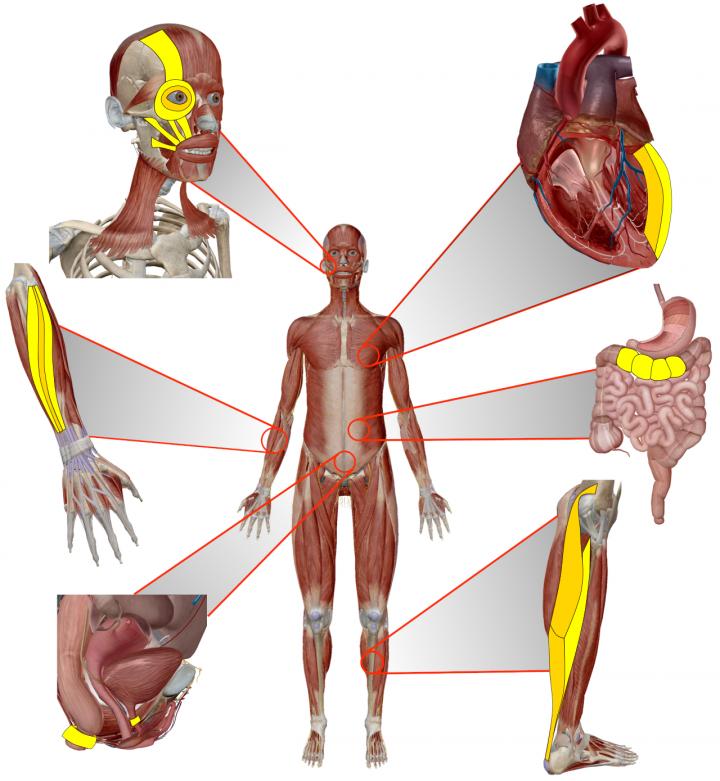
Credit: Jonathan Rossiter, University of Bristol
Loss of strength and muscle wastage is currently an unavoidable part of getting older and has a significant impact on health and quality of life.
Sarcopenia, as it’s known medically, is responsible for a large number of health problems and body function disorders, and is brought about by ageing, stroke, trauma and degenerative diseases. Current treatments are predominantly based on external devices such as orthoses and rigid exoskeletons, but these can cause tissue damage and are limited in use.
emPOWER is a visionary project, led by Jonathan Rossiter, Professor of Robotics at the University of Bristol, in partnership with Imperial College, UCL and the NIHR Devices for Dignity MedTech Co-operative, hosted by Sheffield Teaching Hospitals Foundation Trust. The project will explore how artificial muscles could radically transform treatment options in the future and effectively turn back the body clock.
“We are working on the principle that implanting robotic, artificial muscles to replace or work alongside our own muscles, can restore natural body function and help us all to live longer, more comfortable and active lives.
“emPOWER implantable muscles must work seamlessly with the body. They must be biocompatible, integrate smoothly and strongly with natural bone and tissue, and coordinate intelligently with the patient’s own movements and muscle actions,” said Professor Rossiter.
To deliver this level of sophistication, the emPOWER project is a multi-disciplinary team of 30 researchers across the fields of soft robotics, materials science, bioengineering, chemistry, ethics, healthcare regulation and medicine.
“Together the emPOWER team will deliver a system of implantable muscles that receive their energy from outside the body, for example from a small power pack, and which communicate directly with the nervous system for control and sensing.
“This is truly a project for 2050 and beyond, taking an adventurous approach that leap-frogs current state-of-the-art research. There is considerable work to be done but we confidently expect to see emPOWER artificial muscles in clinical use before 2050.”
###
The project is funded by the Engineering and Physical Sciences Research Council (EPSRC), part of UK Research and Innovation, through its Transformative Healthcare Technologies for 2050.
Further information:
Bristol Robotics Laboratory (BRL) is the most comprehensive academic centre for multi-disciplinary robotics research in the UK. It is a collaborative partnership between the University of the West of England (UWE Bristol) and the University of Bristol, and home to a vibrant community of over 300 academics, researchers and industry practitioners.
UKRI EPSRC Transformative Healthcare Technologies for 2050
The aim of this funding is to foster the development of revolutionary new technological approaches to transform care and treatments in the NHS by 2050, demonstrating the importance of engineering and the physical sciences to transforming future healthcare provision.
Media Contact
Victoria Tagg
[email protected]
Original Source
https:/




